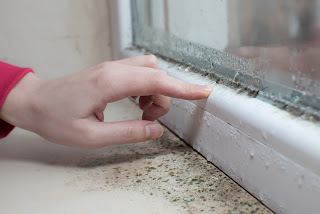Understanding Air Quality Testing And The Effects Of Mold In Florida
What is Air Quality Testing?
What is a Mold Spore?
A mold spore is a tiny, microscopic structure that functions as the reproductive unit of fungi. These spores are incredibly resilient and can survive under harsh conditions, waiting for the right environment - warm, moist, and with an organic food source - to grow and multiply. When mold spores find these conditions, they can colonize and spread rapidly, often leading to visible mold growth on surfaces. Because they are airborne, mold spores can easily be inhaled by humans and pets, potentially causing health issues.
Mold Facts You Should Know
Mold Can Grow Quickly: Under the right conditions, mold can begin to grow within 24 to 48 hours.
Not All Mold is Visible: Mold can grow behind walls, under floors, and in other hidden areas, making air quality testing crucial.
Mold Thrives in Humidity: Florida's high humidity makes it a hotspot for mold growth. It's essential to keep indoor humidity levels below 60% to prevent mold proliferation.
There are Thousands of Mold Types: Not all mold is harmful, but certain types like Stachybotrys chartarum (black mold) can produce toxins.
Health Effects of Mold Exposure
Exposure to mold can lead to a variety of health issues, especially for individuals with allergies, asthma, or compromised immune systems. Common health effects include:
Respiratory Problems: Coughing, wheezing, and difficulty breathing are common symptoms of mold exposure.
Allergic Reactions: Symptoms can range from sneezing, runny nose, and red eyes to more severe allergic reactions.
Asthma Attacks: For people with asthma, mold exposure can trigger attacks or worsen asthma symptoms.
Long-term Health Issues: Prolonged exposure to certain molds can lead to more serious health problems, including infections and lung issues.
Protecting Your Home and Health
Regular air quality testing is a key step in identifying and mitigating mold risks in your home or property. If testing reveals high levels of mold spores or other pollutants, it's essential to take action. This can include controlling humidity levels, improving ventilation, and, if necessary, professional mold remediation.
Remember, early detection and action can prevent the spread of mold and protect your health and property.
For more information about our services or to schedule an air quality test, contact us today. Let's ensure that the air you breathe is clean and safe.
We’re Here To Help
Feel free to call us if you have questions at 407-319-4608. You may also schedule your inspection or find additional information on our website.
*Image from Shutterstock

